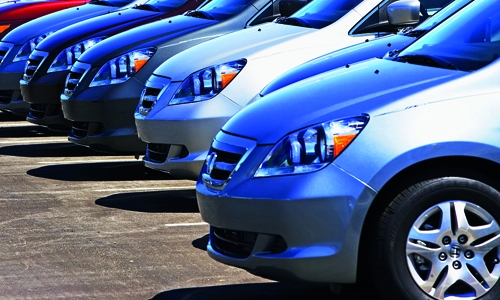Car sales hit by oil price rise
Manama : The increase in petrol prices since the beginning of this year had its toll on the local automobile market, according to car showrooms owners and managers.
They say the prices of vehicles with bigger engines, usually consuming more petrol, have dropped by around 15- 20 per cent since the prices of gasoline were hiked.
These cars were among the top-selling categories in the Kingdom before the oil price rise. The petrol price rose following Oil Minister Shaikh Mohammed bin Khalifa Al Khalifa’s Resolution 1 of 2018.
The resolution was announced on January 8 and ever since, the prices of Jayyid (91-octane) has been increased from 125fils/litre to 140 and Mumtaz (octane-95) from 160fils/litre to 200.
A similar decision was announced in 2016 by the former Energy Minister Dr Abdulhussain Mirza, raising the prices from 80fils/litre for the Jayyid fuel to 125 and from 100fils/litre to 160 for the Mumtaz. It was the first petrol price increase in Bahrain in three decades.
Alternative Options
Speaking more about the situation, Majestic Car Showroom Manager Najm Al Sinan told Tribune, “The sale of six and eight-cylinder cars has declined by around 10-15 per cent in the first quarter of the year, since the prices of fuel and other important commodities and services increased in Bahrain.
This type of cars has been very popular among the youth, as well as local and Arab families here. But they now look for more economic alternatives.” Al Sinan explained that their showroom and car rental agency mostly buy, sell and rent brand new and hardly used cars. He confirmed that the numbers of customers have been generally declining lately, attributing it to the increasing expenses of life, including petrol, and the steadily weakening purchasing power.
“Customers are more concerned about the fuel consumption of vehicles than other luxury options nowadays. Economic cars sell like hot cake now. More vehicles are now entering the market and gaining good popularity among people such as electric cars and hybrid vehicles, which run on fuel and electricity at the same time. They’re mostly Japanese or German-made. Despite the current recession in the market, I expect the situations to gradually improve, especially with the emergence of such economic alternatives.”
However, when asked about the speculations indicating that diesel-running vehicles might gain popularity in Bahrain as a cheaper choice of fuel, similarly to regional, Asian and European countries, Al Sinan remarked, “I don’t expect people here would choose economic solutions against protecting the environment. Diesel is harmful and air pollution rates are high in many countries where vehicles depend on it to run. Some trucks operate on diesel here, and their numbers are declining. But to have diesel-operating vehicles is unexpected, especially among smaller cars.”
Related Posts

